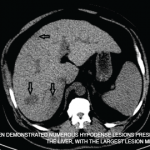ACR Convergence 2025 experts explore gout’s deep ties to MetS, insulin resistance and cardiovascular mortality, weighing new data on colchicine, febuxostat and SGLT2 inhibitors.


ACR Convergence 2025 experts explore gout’s deep ties to MetS, insulin resistance and cardiovascular mortality, weighing new data on colchicine, febuxostat and SGLT2 inhibitors.

Raj Vachhani, MD, & Angelo L. Gaffo, MD, MSPH |
Case Presentation A 45-year-old man with crystal-proven gout, poorly controlled diabetes and chronic kidney disease was lost to follow-up for six years and presented back to the VA clinic in the midst of a gout flare. He stated he had continued taking 100 mg of allopurinol daily, but his serum urate level was 13.8 mg/dL….

A recent study advances the understanding of factors associated with a target serum urate level of 6 mg/dL or less. Researchers found such factors as having a rheumatologist as the main provider of gout care contributed to achieving and maintaining this outcome. However, the presence of co-morbidities lowered a patient’s chances for achieving the target serum urate level, even with allopurinol use…

SNOWMASS VILLAGE, COLO.—The 2019 ACR Winter Rheumatology Symposium featured a session on gout. Despite a good understanding of its pathogenesis and the many effective therapies to treat it, gout remains a major public health problem in the U.S. Ann K. Rosenthal, MD, Will and Cava Ross professor of medicine and chief of the Division of…

Results of a recent study in Arthritis & Rheumatology fail to clarify whether urate-lowering therapies may potentially reduce mortality risk in patients with gout.1 The study also underscores the fact that many physicians are not following the ACR guideline to help their patients achieve target serum urate levels. Partly because of this, it remains unclear…
Reuters Staff |
NEW YORK (Reuters Health)—Allopurinol does not appear to contribute to decline in kidney function and may actually protect renal function in patients with gout, according to a large population-based study. Gout affects around 4% of Americans and often occurs alongside chronic kidney disease (CKD), Dr. Tuhina Neogi from Boston University School of Medicine and colleagues…

New research raises questions about the cardiovascular safety of febuxostat for gout patients compared with allopurinol. The study found that although febuxostat was noninferior to allopurinol, febuxostat-treated patients had similar overall rates of major adverse cardiovascular events as allopurinol-treated patients, but had higher rates of all-cause mortality and cardiovascular mortality…

Larry Beresford |
SAN DIEGO—In a session at the 2017 ACR/ARHP Annual Meeting, Kam Nola, PharmD, MS, professor in the College of Pharmacy and vice chair in the Department of Pharmacy Practice at Lipscomb University in Nashville, Tenn., updated participants on new medications and new indications for rheumatology treatments and safety labeling changes approved by the U.S. Food…
Gene Emery |
(Reuters Health)—Gout sufferers with major pre-existing heart disease face a higher risk of death if they are treated with the drug febuxostat, a large long-term study has concluded. The risk of death from cardiovascular disease was 34% higher with febuxostat than with allopurinol. When researchers considered deaths from any cause, the risk was 22% higher…

Duzallo, a combination of lesinurad and allopurinol, was approved by the FDA in August to treat hyperuricemia associated with gout…